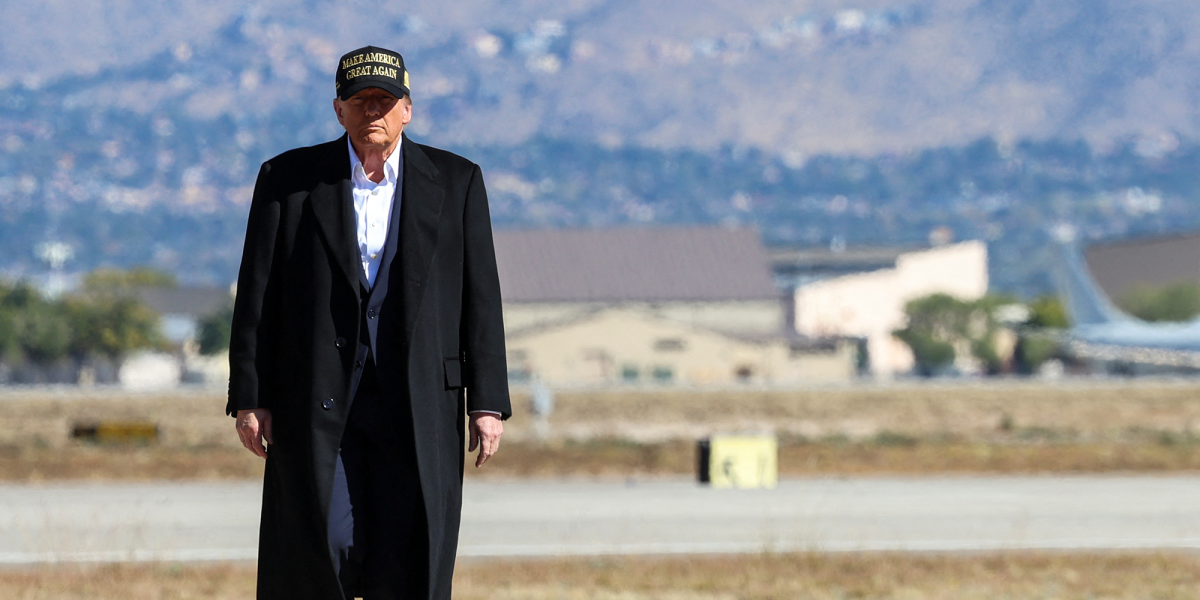The imposition of tariffs to Mexican imports of 25%, as the president-elect of the United States, Donald Trump, threatened on Monday, once he assumes power, increases the risks for growth, Citibanamex considered.
In his daily report prepared by his economic studies area, he highlighted that the imposition of tariffs would generate inflation and higher rates of interest in the United Statesin addition to a depreciation of the peso and a decrease in activity in Mexico.
He detailed that trump threatened on Monday to impose 25% tariffs on Mexico and Canada as soon as it takes power, as part of its plans to combat illegal immigration and drug trafficking.
In this regard, the financial institution explained that the above would make the goods more expensive of the affected countries in the US market, which could put upward pressure on inflation.
And, he explained, Mexican imports alone represent just over 15% of total United States imports.
“Also considering the expectation of a higher public deficit in the United States under the Trump administration, this could lead the Fed (Federal Reserve) to a higher terminal rate than previously considered, attenuating the positive effects on growth of the greater fiscal impulse and of certain import substitution,” he pointed out.
In contrast, he mentioned that the President of Mexico, Claudia Sheinbaumpointed out that “one tariff will come in response to another.”
In this regard, the entity pointed out that, despite the vagueness regarding the magnitude of said tariffs, compliance with the threats would affect 40% of imports, which is what those coming from the United States represent.
Reduction in exports
Citibanamex added that the tariffs to Mexico would cause a reduction in exports, since 81% of the country’s sales of goods abroad are destined for the United States.
“The depreciation of the peso already observed since Trump’s election and the additional one that may be registered, would moderate this impact, as would a decrease in the profit margins of exporters from Mexico and importers from the United States. However, it is foreseeable that the net effect will be negative on Mexican exports,” he argued.
Price pressure in Mexico
The Citibanamex analysis added that the tariff war would put pressure on prices in Mexico, since an additional depreciation of the exchange rate, plus the costs of tariffs passed on to consumers, would generate inflationary pressures that, it anticipated, would not be compensated by the lower activity. productive associated with lower exports.
The above, he noted, could imply that the monetary policy target rate remains in restrictive territory for longer, which could negatively impact the growth of the Mexican economy.
Maintains growth estimate
Despite this, Citibanamex maintained its estimate of Gross Domestic Product growth (GDP) for 2025 at 0.2%, since, he explained, Monday’s announcement and the uncertainty that it generates regarding the bilateral relationship with the United States, is within his updated estimates following Trump’s victory.
“It should be clarified that this scenario does not consider the materialization of threats, in particular tariffs on Mexico or another country. If it materializes, we would evaluate the potential impacts for the Mexican economy. However, the pronouncements expressed yesterday and today increase the probability of seeing a tariff war, which biases downward our estimated GDP growth trajectory, and upwards those of inflation, exchange rate and interest rates of the coming years,” he concluded.















